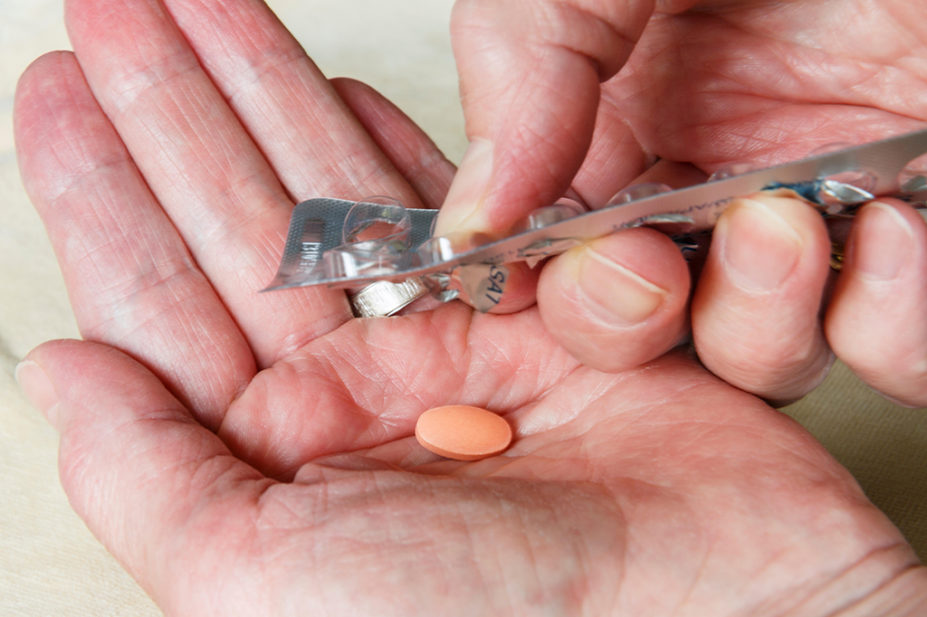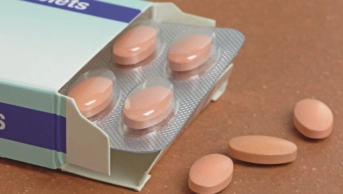
Realimage / Alamy Stock Photo
Only 1 in 15 reports of muscle pain or weakness by people taking statins can be attributed to the drugs, according to a new analysis of almost 155,000 patient records from statin trials.
The study, published in The Lancet on 29 August 2022, aimed to give a definitive answer to the question of whether statins — which are currently used by around 8 million people in the UK to lower low-density lipoprotein cholesterol — cause muscle problems.
In 2001, there were reports that 31 people, who had been taking high-strength statins, died in the United States from severe rhabdomyolysis, a condition caused by muscle breakdown.
Since then, the question of whether statins cause muscle problems has been much-debated. Most reports of muscle problems are of relatively mild pain or weakness, not muscle damage.
In this latest study, researchers from the Cholesterol Treatment Trialists’ Collaboration, based at the University of Oxford and funded by the British Heart Foundation, analysed data from large and long-term randomised controlled trials that include at least 1,000 participants and consider at least 2 years of treatment.
Data was collected from 19 trials with a total 123,940 participants, which compared statins to placebo, in addition to 4 trials with 30,724 participants, which compared different doses or types of statins. The researchers requested individual participant data on all recorded adverse events and based their analysis on this.
They found that 27.1% of people given a statin and 26.6% of people given placebo reported muscle pain or weakness, during an average follow-up of 4.3 years. That equated to a 3% increased relative risk of muscle problems (rate ratio [RR] 1.03, 95% confidence interval (CI) 1.01 to 1.06).
The increased risk was only apparent during the first year of treatment, equating to an additional 11 cases of muscle pain or weakness for every 1,000 people taking a statin for one year.
Higher intensity treatment increased the chances of muscle pain or weakness by 8% relative to lower intensity treatment (RR 1.08, 95% CI 1.04 to 1.13), and that increased risk lasted beyond the first year of treatment.
Sotiris Antoniou, consultant pharmacist in cardiovascular medicine at Barts Health NHS Trust, told The Pharmaceutical Journal: “Statins are one of the most common medicines prescribed, and rightly so, as they have been shown to significantly reduce the risk of heart attacks and stroke.
“Unfortunately, we all too commonly hear of non-adherence predominantly due to side effects, such as muscle aches. However, we are now receiving more and more data that the actual increased risk of myopathy is really quite small and much more likely to be unrelated to the statin.”
He added: “The difficulty we all face as clinicians is irrespective of whether it’s statin-related or not; from the patient’s perspective, it can be intolerable.
“However, more data like [in] this publication will hopefully enable us to have the confidence to discuss the true risk with the patients in relation to the overall significant benefit, with the aim of potentially re-trialling with a lower dose or even an alternative statin as appropriate, noting the overwhelming body of evidence supporting their use.”
Martin Marshall, chair of the Royal College of GPs, said the study “should be reassuring to clinicians and to patients taking or considering taking statins that the risk of muscle pain is low and usually does not outweigh the benefits of statin use”.
“GPs are highly trained to prescribe and will do so based on the circumstances of individual patients. We will take into account a patient’s health needs and their medical history, as well as clinical guidance — and we will consider the various treatment options, not just drug therapies, in conversation with the patient about the risks and benefits of each.”
Colin Baigent, director of the Medical Research Council Population Health Research Unit at the University of Oxford and the study’s joint lead author, said: “The idea that statins may cause frequent muscle pain has been a persistent belief among some patients and clinicians. However, our study confirms that the statin is rarely the cause of muscle pain in those taking statins.”
He added that people reporting muscle pain while taking statins should continue to take them while doctors investigate other possible causes.


